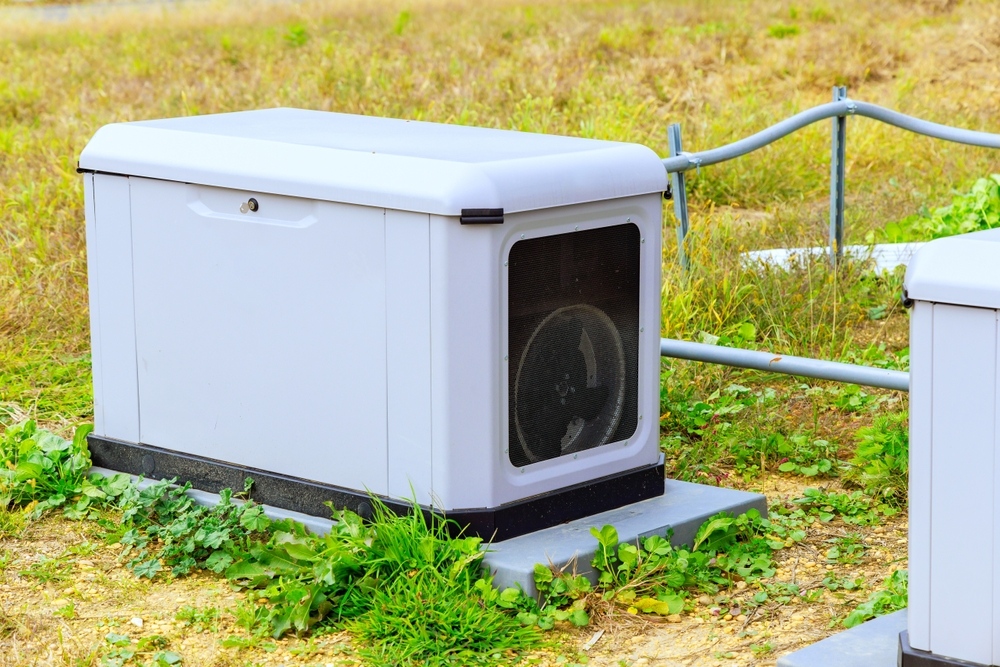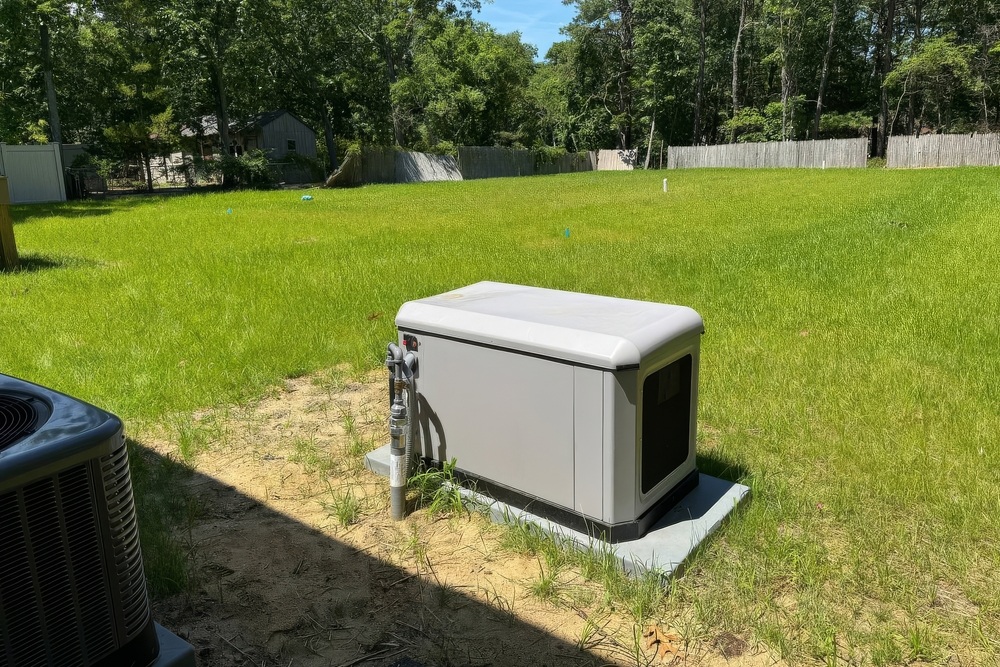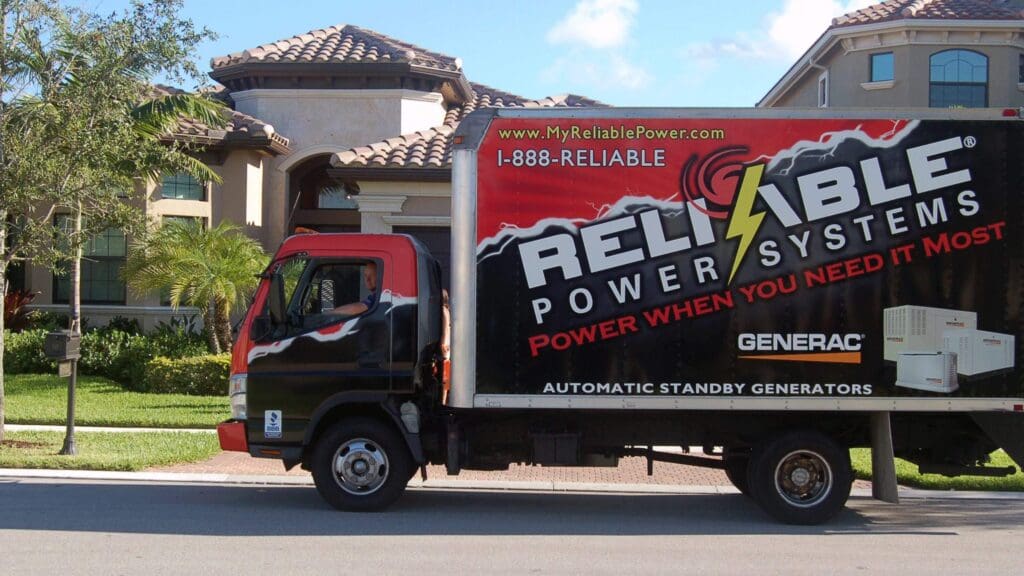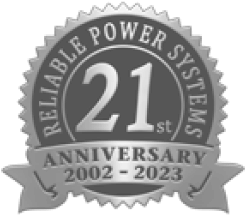
The increasing frequency of natural disasters, extreme weather, and aging infrastructure lead to increased power outages. As a result, it’s important to have a dependable backup generator to continue powering lights during blackouts.
Gas, diesel, or propane backup generators have been popular historically, but they require easy access to fuel and regular maintenance. To help you choose the correct type of generator for your house, we will be discussing the benefits of gas vs. propane generators along with factors to consider before choosing a system for your property.
Propane Generators: Benefits and Applications
Propane generators generate energy by internal combustion. Regardless of how you use it and what your needs are, they operate at maximum power. You will need to replace the battery when it runs dry. The power output of propane home backup systems generally provides enough power for a typical-sized house. Propane generators offer several advantages, even if they are less prevalent than gas or diesel.
How Does a Propane Generator Work? Parts and Components
- Engine: The engine is the primary component of a generator, driving mechanical energy and converting it later. Propane generators use gaseous or liquid propane, with larger engines delivering higher power output.
- Control Panel: The control panel for a propane generator is available in manual and automatic types. Manual generators have buttons for control, while automatic generators are programmed to automatically turn on during power outages. The panel also includes gauges and meters for monitoring factors.
- Voltage Regulator: This regulates the output voltage of essential appliances. The voltage regulator also allows users to adjust the voltage for different appliances, such as ACs and coffee makers.
- Fuel System: The fuel system is a critical component of generators, involving components like the fuel tank, pump, supply line, and exhaust. Its main function is to atomize propane fuel and separate foreign matter to maintain the engine.
Applications for Propane Generators
There are several uses for propane generators. They can provide households with a dependable supply of backup energy. Propane canisters are hefty and take up a lot of space, but they may be a somewhat handy option for off-grid electricity for campers and RV owners.
In the case of a power outage, key appliances and HVAC systems can be powered by propane generators, depending on their power output. Farming and other fields frequently employ propane generators, aside from home and recreational use. Enough electricity is available from heavy-duty propane generators to run large machines and equipment.
Read More: Top 11 Reasons Your Backup Generator is Not Working
Advantages of Propane Generators
1. Burns Clean
If you’re comparing the advantages of gas vs propane generators, it’s important to know that the amount of carbon dioxide a propane generator emits is about half that of a gas or diesel generator. Propane is a far more environmentally friendly fuel than other options due to its cleaner energy generation.
2. Long Life Cycle
Propane is significantly safer to store than gas and doesn’t break down as soon. Significant amounts of propane may be kept indefinitely under the proper circumstances.
3. Exceptional Option in Emergencies
In an emergency, propane generators are a great choice. Propane provides several advantages over diesel or gasoline, including the ability to store large amounts of fuel securely at home without risk of deterioration.
Since it is difficult to stockpile gas and diesel for long periods, you will depend on gas stations to remain open and accessible in an emergency. You may weather a protracted outage without ever leaving your home if you have a supply of propane stored in your garage or shed.
4. Temperature Resistant
Extreme temperatures reduce the efficiency of gas or fuel. Propane has a greater temperature tolerance, operating between -40 and 120 degrees Fahrenheit. Although it’s always best to store fuel at room temperature.

Natural Gas Generators: Benefits and Applications
Gas generators are similar to propane generators because they also use an internal combustion engine to burn fuel and generate electricity. Their long history, widespread ease of use at gas stations, and range of power outputs make them the most common type of backup generators.
Does your natural gas generator continuously shut off? While these systems are dependable, a malfunctioning system is a clear sign your generator needs maintenance. Keep reading to learn more about natural gas generators, maintenance requirements, and usage applications.
Applications for Natural Gas Generators
Are you wondering whether or not it’s cheaper to run a generator on propane or gas? Natural gas generators are commonly the least expensive choice. A good model may be bought without going over budget. They are a good choice for industrial, off-grid, and residential backup applications. With such a wide range of sizes and scales of power, natural gas generators are frequently used on building sites and at events where grid power is not accessible.
Advantages of Natural Gas Generators
1. Easy to Refuel
One of the reasons natural gas generators are so popular is the convenience of their fuel source. Refilling these generators is as easy as accessing gas at a gas station.
2. Intuitive to Operate
Most natural gas generators are simple to operate. The majority come with an electric starter, and connecting them to your home’s circuit panel is rather simple.
3. Superior Energy Density
Compared to propane, natural gas is a more efficient source of fuel.
4. Long Lifespan
In general, gas generators last longer than propane generators.
Is It Cheaper to Run a Generator on Propane or Gas?
Despite recent price fluctuations, propane remains more expensive per watt of electricity produced than gasoline. However, it is the more environmentally friendly option. Gasoline degrades rapidly and is riskier to store, especially for backup power. Propane has an extended shelf life and may be less expensive depending on how frequently you use it.
Read More: What Are the Benefits of Electrical Safety Devices for Houses?
Parts of a Natural Gas Generator
- Fuel: Natural gas power generators require fuel to operate, which can usually be obtained from your town’s natural gas pipeline. This allows it to be fueled with minimal interruptions.
- Combustion Chamber: The generator’s internal combustion engines contain a combustion chamber, where air and fuel are compressed and burned.
- Pistons: Pistons slide back and forth within the chamber to increase combustion.
- Spark Plugs: Spark plugs with electrodes on their ends protrude into the chamber.
- Crankshaft: The crankshaft converts the pistons’ motions into a rotating motion, spinning the rotor inside the stator to create electricity.
- Stator: The stator is a stationary cylinder around the rotor.
- Rotor: The rotor is the rotating electromagnetic shaft that generates a powerful electrical current.

Professional Backup Generator Installation and Replacement Services
Having a backup source of power puts homeowners at ease. That’s where the team of professionals at Reliable Power Systems come in. Our team will help you compare the benefits and drawbacks of gas vs propane generators to help you make an educated choice for your property.
Our expert electricians provide backup generator installation services in Boca Raton, Florida, including Generac generators and Kohler generators. Since 2002, we have provided comprehensive generator installation and generator repair services to local communities. Any underground work, trenching, propane or natural gas connections, and popping are handled in-house with our licensed, licensed technicians.
When deciding which backup generator better fits your needs, contact the experts at Reliable Power Systems. We’ll help you decide which generator best suits your needs. Give us a call at (561) 757-4405 to receive assistance.











